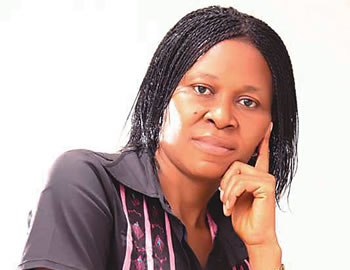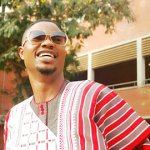Dr Joe Okei-Odumakin is the president, Women Arise for Change Initiative, a rights group. She has been recognised locally and internationally for her doggedness in crusading a just society and upholding the fundamental human rights of citizens. In this interview with DARE ADEKANMBI, she speaks on the civil society community, the condition of women, among others.
THE question many people have been asking as a result of the seeming inactivity of the civil society community in Nigeria is: where are the civil society groups? As a stakeholder, what do you think is happening to this segment of society?
The civil society remains consistently relevant even in our society today. Perhaps, why it seems that there is no vibrancy is the fact that the operational mode of the civil society now cannot be compared to the days of the military where street activism was prevalent. Today, the mode of operation has changed from that of activism and adversary to advocacy and partnership. CSOs, after the military interregnum, has learnt how well to apply themselves to government issues. There is more education on both sides on the art and practice of participatory governance. Civil society these days engages government and political leaders in dialogue. They partner on conflicting issues to bring about pro-people reforms and interface with them to ensure good governance. In this democratic dispensation, international development partners have also been encouraging the civil society through their supports to partner and complement the activities of government so as to bring about and maintain an economic system that is pro-growth, with equity and welfare of all the citizens. That nonetheless, the civil society remains what it is, even though there has been a lot of proliferation due to the antics of the politicians who have infiltrated into the system and compromised some of these organisations.
How do people identify genuine civil society groups from those on whose platforms politicians hide to further interest?
From the conduct of the leadership and members of any organisation, their programmes and disposition to societal issues, you can determine the ideology of such organisation and conclude if truly it exists to serve the interest of the society or a political interest. Any civil society organisation established to promote the interest of the people will always stand in gap for the entirety of the people; it will not be self-seeking but will always mobilise against anti-people policies.
Civil society organisations have participated in fuel subsidy removal as well as fought administrations that have hiked fuel prices. Such vibrancy demonstrated in the past seems to be lacking now. Why?
Yes, but like I said earlier, the peculiarity of the present political order which we call democracy has opened more windows for dialogue rather than street activism in many circumstance unlike the days of the military where there are no rooms for dialogue. More so, the willingness of the mass of the people to protest government decisions is usually the driving force behind any action of the civil society. Whenever the will of the people is lacking, there is always limit to how far these organisations can go. The civil society organisations this time around conduct more researches, the result of which they use in engaging the government for reforms or change of policy decisions most of these are done through meetings, dialogues and interface at various levels and with various stakeholders.
I know you have been honoured home and abroad for your roles in defending the interest of the vulnerable groups. Where do you think the civil groups in Nigeria got it wrong?
From the point where some of the organisations and their leadership cannot distinguish between their roles as watchdogs and being involved in the political system, like we see in many today. There is a lot of political proliferation in the civil groups nowadays, politicians also support some individuals to float organisations which they use to promote their selfish political interest, they equally engage some existing ones, and this is the point where some civil groups miss it. However, this is not to say that there are no groups that are doing fantastic jobs in the promotion of good governance and the formulation of pro-people policies.
What’s your view on the clamour for the registration and coordination of civil society groups, particularly the call for the establishment of a civil society commission that will sift the wheat from the chaff?
While it is imperative to promote discipline and decency in any society, we must also recognise the fact that civil society groups exist as non-profit, non-governmental organisations and any attempt to subject such to state regulation may infringe on the freedom of association of the people. Freedom of association is a key aspect of NGO regulation. The right to free association is recognised under international human rights law. For example, Article 20 of the Universal Declaration of Human Rights of 1948 recognises the right to freedom of association. In addition, Article 22 of the International Covenant on Civil and Political Rights states that everyone has a right to freedom of association with others, including the right to form and join trade unions for the protection of interests. Article 8 of the International Covenant on Economic, Social and Cultural Rights also provides for the right to freedom of expression. The regulation of CSOs is a means to infringing on citizens rights to enjoy the right to freedom of association. Regulation of CSOs in Nigeria will lead to the disempowerment of the right to freedom of association. This is because several other international treaties provide for the right of freedom of association. These include Convention on the Elimination of All Forms of Racial Discrimination of 1965, Convention on the Elimination of All Forms of Discrimination Against Women of 1979, Convention on the Rights of the Child of 1989, Convention on the Rights of Persons With Disabilities of 2006. In addition, there are several other binding treaties dealing generally with the right to freedom of association Regulating the activities of the CSOs will amount to stifling their powers and reducing their core areas of intervention. Civil society constitutes a large portion of the NGOs, and voluntarily organises itself to represent a wide range of interest and ties, their intervention at various levels of government continues to bring about pro-people policies, they remain the voice of the people but regulating CSOs activities and mode of operation will surely give government an upper hand. What should rather be encouraged is the registration of any of such group by the Corporate Affairs Commission as a non-profit organisation, ensuring that such organisation is properly constituted, not by bringing them under any state controlled regulation.
You recently were part of the groups that remembered Chief Gani Fawehinmi. Is it right to say with his death came the death of the civil societies?
No. Before Chief Gani Fawehinmi, there have been people and organizations that fought the cause of justice in our society. This has also continued after him, particularly when you remember that Gani Fawehinmi had a lot of lieutenant who were with him through the course of his activism and have continued to sustain his legacy. He actually encouraged a lot of young activists who are still holding-forte and lifting the baaner of justice high. Some of the civil organizations that exist during Gani’s lifetime such as Civil Liberties Organisation (CLO), Women Arise for Change Initiative, Centre for Change, Committee for the Defence of Human Rights (CDHR), Campaign for Democracy (CD) and United Action for Democracy (UAD), Global Alert for Defence of Youth and Less Privileged (GADLYP) and many others are still tireless fighting the cause of justice. Several others have even sprung up fighting and advocating against corruption and bad governance at various levels. So it will not be right to undermine the efforts of these tireless people and conclude that the civil groups die with Gani.
In terms of empowerment and engagement, what will be your rating of the current government on women inclusion in governance?
There have been shifts towards improved women’s political participation and representation. The national gender policy provides the framework for lobbying for affirmative action of at least 35 per cent for women in leadership and decision-making. We are close to this quota in appointive positions in the national and some state levels. However, the progress of women in elective positions and political arena is rather slow and limited. In terms of women economic empowerment, the current government will need to intensify efforts and implement the recommendation of the review of status of women in Nigeria which recommends among others that government create access to reproductive resources such as land, credit and technology for women. Generally, the government is trying but a lot more needs to be done as promised made by the government before coming on board. We cannot at this stage of our history relegate to the background, the role of women in building a formidable society.
At political rallies, you see more women than men in many cases. Yet, no woman has been elected governor in Nigeria let alone president. History is likely to be made in the United States if Americans elect Hilary Clinton. What are Nigerian women not doing right in this regard? What can be done to take leadership from men?
Power is not given freely in any society. It is fought for and won. Therefore, Nigerian women would have to stop agonising; they must start to organise themselves and be more involved in the political parties’ politics and policies. More women will need to join various political platforms and assert themselves in such platforms. Women should rise up and play more concrete and significant roles in the political parties. Their activities should be beyond tying head gears and singing at political rallies. The few women who have already attained some political positions such federal, state and local government levels will also need to encourage other women to contest political positions and also support them in the race. The political parties’ administrators should also be engaged and lobbied to provide opportunities for women to contest elective positions. Political parties should also be legally compelled to implement affirmative action in their party structure and elections. Most women in Nigeria don’t have the kind of money men throw around during elections, so, women should be specially supported financially to compete favorably with their male counterparts. Women must support each and unite across party lines and see themselves as a group, women group must restrategise on how to lobby government for the implementation of CEDAW and other international and local instruments that support increase women’s participation and representation in governance. Women must arise and participate to occupy their rightful position of leadership in this country and I am assured that with women in charge we are sure of building a society better than what we have now. Finally, I can assure you that woman is the future.
WATCH TOP VIDEOS FROM NIGERIAN TRIBUNE TV
- Let’s Talk About SELF-AWARENESS
- Is Your Confidence Mistaken for Pride? Let’s talk about it
- Is Etiquette About Perfection…Or Just Not Being Rude?
- Top Psychologist Reveal 3 Signs You’re Struggling With Imposter Syndrome
- Do You Pick Up Work-Related Calls at Midnight or Never? Let’s Talk About Boundaries







